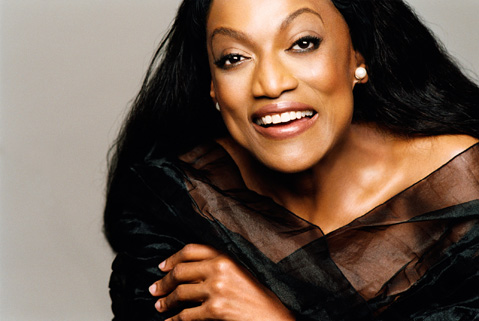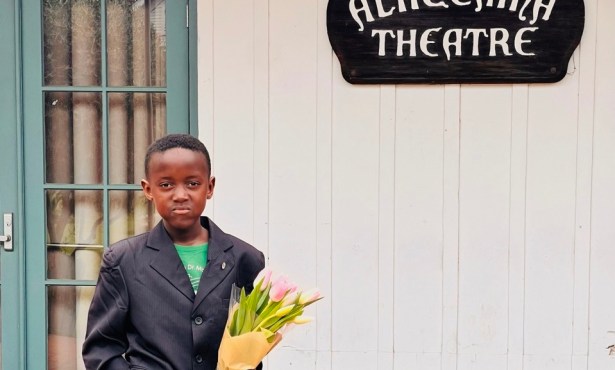Jessye Norman Is a Diva with a Spine
Soprano Discusses New Book with KUSC’s Jim Svejda

The term “diva” has come to mean a shrewish singer with an exaggerated sense of entitlement. But the Latin word originally meant “goddess” and suggested grace rather than attitude. With the release of her memoir this month, Stand Up Straight and Sing!, American operatic soprano Jessye Norman may make headway in rescuing the word from its pejorative fate. The African-American singer rose to well-deserved fame, beginning with a major vocal competition win in Munich in 1969, and has inspired international audiences with her powerful dramatic soprano and artistic versatility. She is respected by music insiders for her pronounced work ethic and professionalism, and beyond the concert hall, she demonstrates her commitment to education and human rights.
Tallying major laudations alone is overwhelming: Norman has more than 30 honorary doctorate degrees, as well as a National Medal of Arts, and is a Kennedy Center Honoree, Honorary Ambassador to the UN, France’s Commander of the Order of Arts and Letters, Légion d’Honneur recipient, and a Grammy Lifetime Achievement Award winner. But underneath the medals and statuettes is the woman herself. The book is rich in detail about Norman’s cherished childhood home and community in Augusta, Georgia, the many mentors and colleagues who influenced her, and her mature opinions about music and spirituality. Mostly, though, Norman is a storyteller, and Stand Up Straight and Sing! unfolds the life of a conscientious artist who prominently meshes with the history of her times. She heard Dr. King preach in her hometown as a girl. At 5 years old, she defied a “Whites Only” sign at a train station just to see if anything bad would really happen (Norman and her siblings were all able to read by age 4). She participated in marches and sit-ins. She sang for Rosa Parks and Marian Anderson. On the eve of the new millennium, Norman paired with fellow soprano Kathleen Battle to sing “My Country, ’Tis of Thee” on the steps of the Lincoln Memorial, memorializing Anderson’s 1939 singing of the song after she had been refused the stage in Constitution Hall because of her race. Norman was summoned to sing at memorial services for Jacqueline Kennedy Onassis and Thurgood Marshall, a reception for Nelson Mandela for his first visit to the U.S., and for H.H. the 14th Dalai Lama.
Norman looks fondly to her roots, cherishing deeply a loving family life. “Janie and Silas Norman were incredible parents,” she writes. Silas expected his children to form well-considered opinions; “I don’t know” was never an acceptable answer. And it was Janie’s admonition “Stand up straight!” that reminded her daughter of not only correct posture but also the self-possession and confidence behind it. “[I]n spite of the indignity of Jim Crow laws … we felt an unerring sense that ‘this was our country, too,’” Norman writes. The book entertains, too, with many stories of Norman’s strong-headed behavior. But this is a diva that has earned her authority and can set a standard for real backbone.
UCSB Arts & Lectures presents Jessye Norman in conversation with Classical KUSC’s inimitable Jim Svejda at the Music Academy of the West’s Hahn Hall on Friday, May 16, 7:30 p.m. For tickets and info, call (805) 893-3535 or visit artsandlectures.sa.ucsb.edu.



